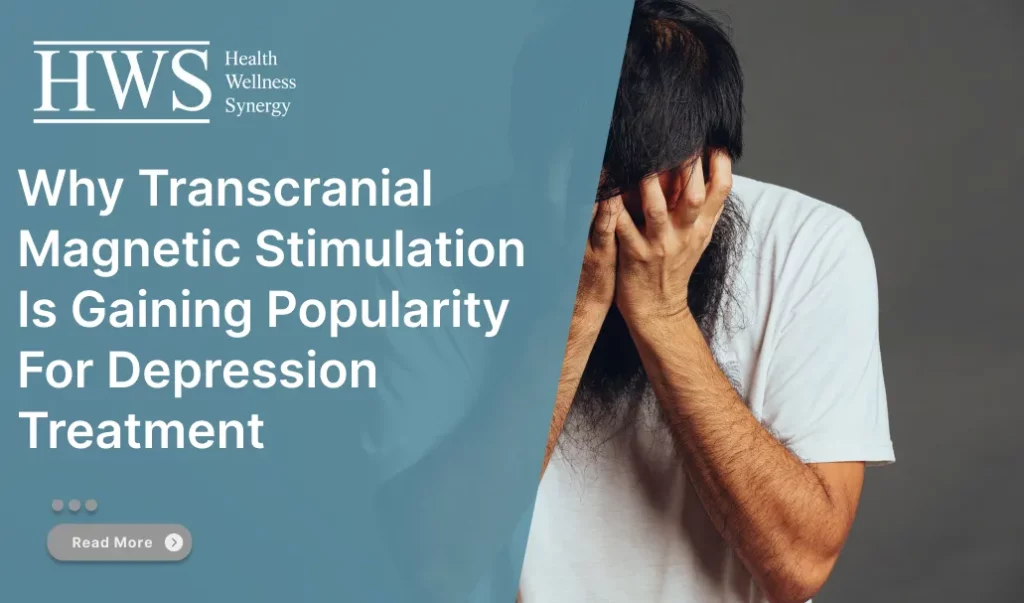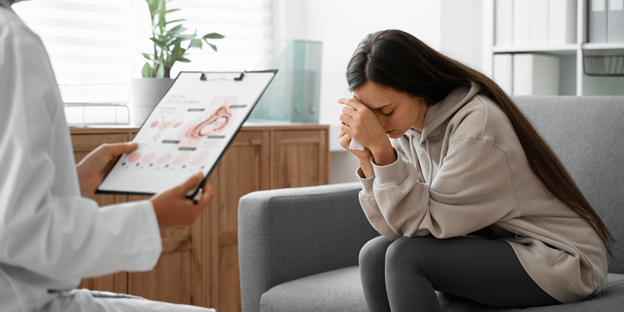
Depression affects people in different ways. For some, daily tasks feel heavier. For others, motivation fades or old habits stop working. Many people in New Jersey try several medications before they realize they still need better relief. That gap between effort and progress is one reason Transcranial Magnetic Stimulation NJ has become more popular over the past few years.
TMS is not new, but more adults are hearing about it through friends, family, or local clinics. The treatment is simple. It does not involve medication. It does not require sedation. And for many patients, it delivers steady improvement when other approaches fall short.
A growing number of adults do not respond well to antidepressants. Some never see meaningful change. Others improve for a short time and then fall backward. Medication resistance is common, yet many people feel discouraged when they reach that point.
TMS offers a new option. It uses magnetic pulses to stimulate specific areas of the brain connected to mood and motivation. This targeted approach allows treatment without flooding the whole body with medication. People who worry about side effects often appreciate this difference.
Many also like that TMS does not require major changes to daily life. Sessions are short. You stay awake and comfortable through the entire process. When you leave the office, you can return to work or home right away.

One of the reasons Transcranial Magnetic Stimulation is gaining momentum is how direct and practical it is. The patient sits in a treatment chair. A small coil rests on the scalp. The device delivers tapping sensations in short bursts. Most people get used to the feeling within a few minutes.
There is no recovery period. You do not need someone to drive you. You do not feel “out of it” afterward. The treatment is gentle enough for people with full schedules, long commutes, or demanding jobs. This flexibility makes a big difference for adults who cannot pause life to manage their symptoms.
TMS has been studied for many years. Research shows clear benefits for many patients who struggle with depression. People often notice early shifts in mood or energy after several weeks of sessions. These small changes add up as treatment continues.
Because TMS helps retrain brain pathways connected to mood, the results can last long after the treatment series ends. Patients often describe feeling lighter, clearer, or more steady. Progress does vary from person to person, but the long term impact is a major reason more clinics recommend TMS as part of a modern depression treatment plan.
TMS is not a one size fits all program. Before treatment starts, patients complete a consultation and a detailed evaluation. The provider reviews symptoms, history, and overall health to build the best plan.
Each session follows a precise map. Providers measure the treatment point on the scalp so every session stays accurate. This is important because the stimulation must reach the correct area of the brain to work well. Many clinics, including HWS Center, check progress throughout the series to make sure patients are improving.
This guided, personalized structure has helped people feel more confident about trying something new.

As more people share positive experiences, conversations about TMS have become more common. The stigma around brain based treatments is decreasing. Adults now talk openly about mood, motivation, and mental health support. This cultural shift has made it easier for people to explore different treatments without fear or embarrassment.
Local access also plays a major role. Clinics across New Jersey now offer TMS programs, which makes it easier for people to stay consistent with sessions. The closer the clinic, the easier it is to maintain a full treatment plan. Consistency is one of the strongest predictors of success.
If you feel like you have tried everything and still struggle with depression symptoms, TMS may be worth exploring. It is safe. It is noninvasive. And for many adults, it brings real relief when other options fall short.
The best next step is a consultation. A provider can review your symptoms, answer questions, and help you decide whether TMS fits your needs and goals.
If you are searching for Transcranial Magnetic Stimulation NJ and want a modern, patient centered approach, HWS Center can help. Our team explains the full process and builds a plan that matches your symptoms and schedule. Reach out today to book a consultation. A better path forward may be closer than you think.
Schedule a consultation! Provide your contact information below and we’ll get back to you as soon as we can.
Transcranial Magnetic Stimulation NJ targets specific brain areas linked to mood instead of affecting the whole body. Many people prefer this because it reduces systemic side effects and offers a more focused treatment option.
Many patients notice changes within two to four weeks. Progress continues as treatment sessions build on each other. Providers track symptoms often to measure improvement.
TMS has been used for many years and is considered safe. Side effects are usually mild. Treatment plans are reviewed and adjusted by trained providers to support long term progress.
Adults who have not seen improvement from medication often benefit the most. People seeking a non medication option or those who cannot tolerate side effects may also be good candidates.
At HWS Center, every patient receives an individualized treatment plan created by a board-certified Nurse Practitioner or psychiatrist. Our advanced TMS machine, evidence-based care, and seamless Patient Portals provide a superior user experience for lasting results.
According to recent clinical trials, TMS demonstrates a high success rate for individuals with resistant depression, particularly when combined with talk therapy and ongoing medication management.
You sit comfortably while the device delivers gentle tapping pulses on the scalp. Sessions last about twenty to thirty minutes. You can return to normal activity right after treatment.
We use cookies to improve your experience on our site. By using our site, you consent to cookies.
Manage your cookie preferences below:
Essential cookies enable basic functions and are necessary for the proper function of the website.
Google reCAPTCHA helps protect websites from spam and abuse by verifying user interactions through challenges.
Google Tag Manager simplifies the management of marketing tags on your website without code changes.
You can find more information in our Cookie Policy and Privacy Policy.